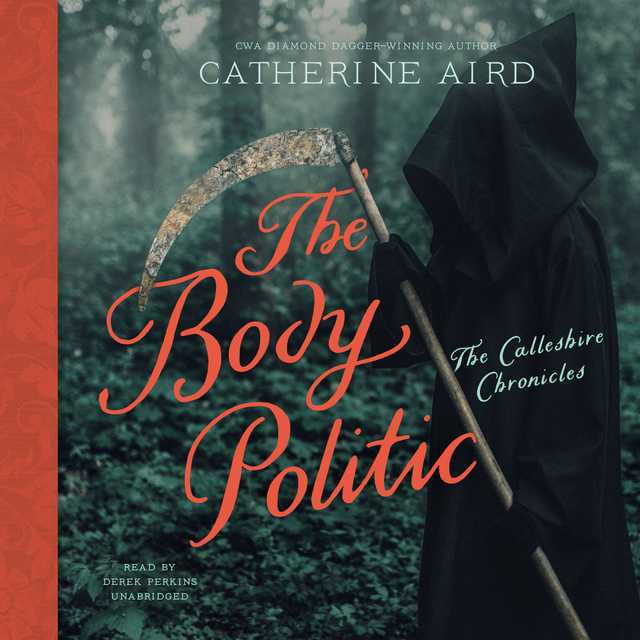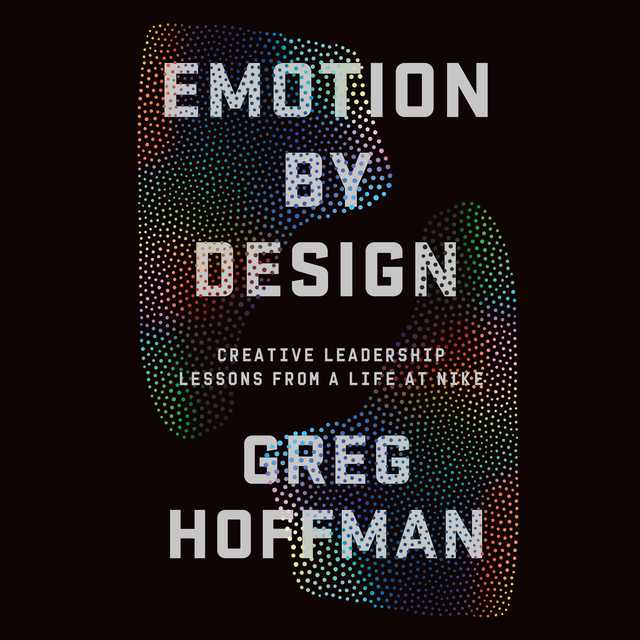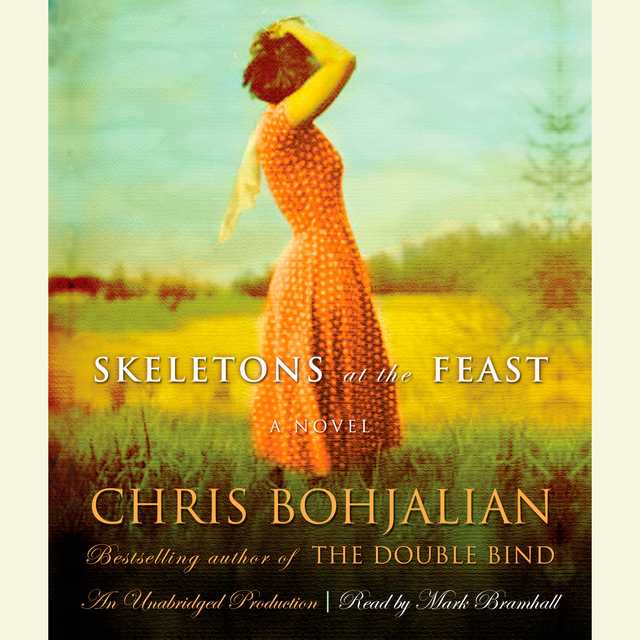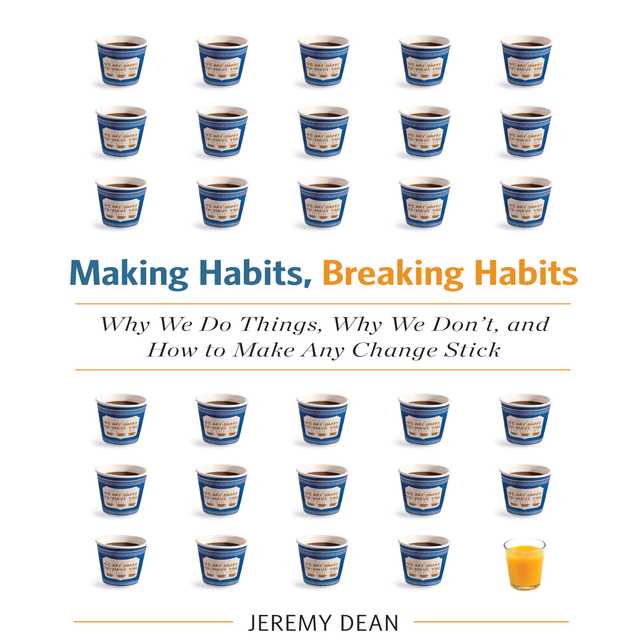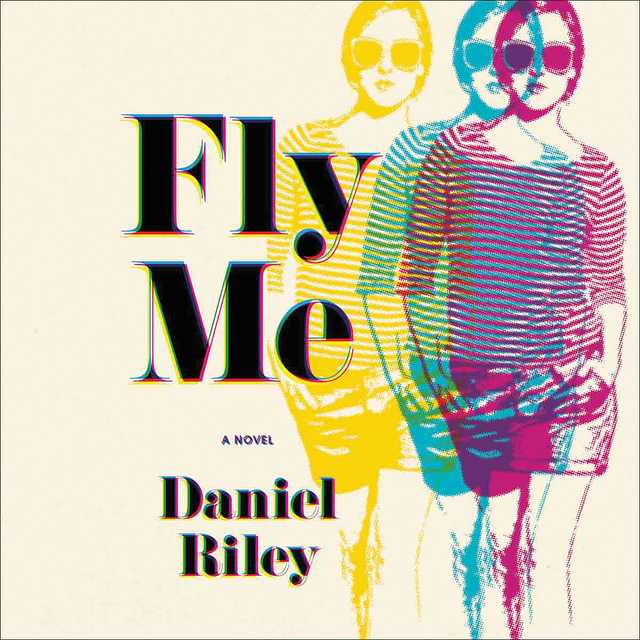The End of Dieting Audiobook Summary
In The End of Dieting, Joel Fuhrman M.D., a board-certified family physician who specializes in preventing and reversing disease through nutritional and natural methods, and #1 New York Times bestselling author of Eat to Live, Super Immunity and The End of Diabetes, delivers a powerful paradigm-shifting book that shows us how and why we never need to diet again.
Fuhrman writes, “By reading this book, you will understand the key principles of the science of health, nutrition and weight loss. It will give you a simple and effective strategy to achieve–and maintain–an optimal weight without dieting for the rest of your life. This new approach will free you forever from a merry-go-round of diets and endless, tedious discussions about dieting strategies. This is the end of dieting.”
Other Top Audiobooks
The End of Dieting Audiobook Narrator
Joel Fuhrman is the narrator of The End of Dieting audiobook that was written by Joel Fuhrman
JOEL FUHRMAN, M.D. is an internationally recognized expert on nutrition and natural healing, a board-certified family physician, President of the Nutritional Research Foundation, and a #1 New York Times bestselling author. Dr. Fuhrman has appeared on hundreds of radio and television shows, including his own successful PBS specials, which have raised millions for public broadcasting stations.
Dr. Fuhrman is the author of six New York Times best-sellers: Eat to Live (Little Brown, 2003); Super Immunity (HarperOne, 2012); The End of Diabetes (HarperOne, 2013); The Eat to Live Cookbook (HarperOne, 2013); The End of Dieting (HarperOne, 2014) and The End of Heart Disease (HarperOne, 2016).
In addition to his New York Times best-sellers, Dr. Fuhrman has written several other popular books, which include: Fast Food Genocide (HarperOne, 2017); Eat to Live Quick & Easy Cookbook (HarperOne, 2017); Eat for Health (Gift of Health Press), Disease Proof Your Child (St. Martin’s Griffin), Fasting and Eating for Health (St. Martin’s Griffin) and the Dr. Fuhrman’s Nutritarian Handbook and ANDI Food Scoring Guide (Gift of Health Press).
About the Author(s) of The End of Dieting
Joel Fuhrman is the author of The End of Dieting
More From the Same
- Author : Joel Fuhrman
- The End of Heart Disease
- The End of Diabetes
- Super Immunity
- Eat for Life
- Fast Food Genocide
- Publisher : HarperAudio
- Abraham
- American Gods [TV Tie-In]
- Dead Ringer
- House of Sand and Fog
- Prey
The End of Dieting Full Details
| Narrator | Joel Fuhrman |
| Length | 5 hours 57 minutes |
| Author | Joel Fuhrman |
| Category | |
| Publisher | HarperAudio |
| Release date | March 25, 2014 |
| ISBN | 9780062308986 |
Subjects
The publisher of the The End of Dieting is HarperAudio. includes the following subjects: The BISAC Subject Code is Diseases, HEALTH & FITNESS, Immune System
Additional info
The publisher of the The End of Dieting is HarperAudio. The imprint is HarperAudio. It is supplied by HarperAudio. The ISBN-13 is 9780062308986.
Global Availability
This book is only available in the United States.
Goodreads Reviews
Jessica
June 14, 2014
We read Eat to Live six months ago and my husband and I have lost 40 lbs between us. I love reading Fuhrman's new stuff because he is always presenting new research and he isn't afraid to say how his recommendations have been refined over the years. He's right that eating tons of vegetables takes over and makes it hard to imagine ever going back to the old way of eating.
Nic
November 03, 2014
Another amazing book by Fuhrman! This one focuses on weight loss, obviously, and breaks down why many popular diets are ineffective and downright dangerous. If you do Atkins or Paleo, please read this book!!!! It'll save your life! Dr. Fuhrman also goes in-depth on why we gain weight and how food effects our bodies, both positively and negatively. There were a lot of "Aha!" moments for me in this book, things that explained not only my struggles with weight (and health) but the struggle of those around me, and of us as a country.I can't encourage people strongly enough to read this, Eat to Live, or Eat for Health. PLEASE READ ONE OF THEM. These books will help you lose weight effortlessly AND discover optimal health. No more being frustrated by working out and counting calories, no more losing to only put it right back on. Dr. Fuhrman does allow for some animal products, so please don't avoid this book simply because you think it's a vegan book (....although veganism is, like, the best thing EVAH!!!).
Leah
September 28, 2016
4.7/5Well researched.Changed the way I ate 100%. Really amazing review of nutrition. Doesn't get 5 stars only because I am not an expert on nutrition yet I feel he may be a bit biased against meat protein, but hell, to the extent he provides evidence, especially for weight-loss, dude gets a 10.
Diana
May 26, 2016
I love Dr. Fuhrman, what can I say? I like that he's an MD who thinks prevention is better than prescriptions. Throughout my life I've asked doctors, "How could diet help this condition?" or "Is this affected by nutrition?" only to be assured that diet had nothing to do with any of my ailments and I should take some expensive (and potentially dangerous) prescription.I don't follow Dr. Fuhrman's nutritional recommendations 100% (for example, he says to avoid oils while I do use a modest amount of coconut oil daily re: Alzheimer's prevention) but since switching over to a plant-based diet--eating a huge salad daily, cutting out sugar/gluten/caffeine/red meat/salt/alcohol -- I have reversed or "cured" some of the health issues I've had my whole life, including asthma, sinus problems, eczema, chronic headaches, and psoriatic arthritis. Moreover, my rosacea has greatly improved and the aches and pains I chalked up to "getting old" have diminished in recent months.It's a tough diet, to be frank, but once you get used to eating that way and feeling great, it's hard to go back to Taco Bell and Starbucks and expensive prescriptions! One thing I did was go slow: I slowly cut out caffeine, then I worked on sugar, and I started adding good things to my diet each week, like a huge salad for lunch. When I went whole hog, so to speak, it was much easier not having to worry about caffeine withdrawal or sugar cravings.
Shaun
May 15, 2019
Joel Fuhrman is a physician who is perhaps best know for his book "Eat to Live." I have not read that book, but imagine that this book is an extension of his original book.There were many things I liked about this book such as Fuhrman's emphasis on eating more nutrient-dense foods such as fruits, veggies, nuts, beans, legumes etc. I also like that even though he promises weight loss if you are able to follow his "nutrarian" lifestyle, his emphasis is on eating for health. And he's right. Good nutrition is likely the best defense we have against chronic disease.That said, I'm not sure how successful the average person would be with implementing his advice. He repeatedly reminds the reader that he isn't advocating a diet, but rather a way of eating...only his "way of eating" will feel like a diet to a lot of people. When working with clients, I help them rate their diet as a whole on a scale from 0-10, 0 being the worst and 10 being the best. The majority of clients fall in the 2-4 range. The emphasis is on getting them to improve that score to a 6 or 7. For most people this means making healthier choices like eating a variety a fruits and veggies, quality meats and carbs, and by limiting processed/nutrient-void foods. Fuhrman's diet is more like a 9 or 10, something to aspire to but probably unrealistic for the average person...and maybe even unnecessary. For example, we know that for a sedentary individual, adding just 30 minutes of moderate intensity exercise 5 days a week is a enough to provide significant health benefits. 60 minutes 5 times per week offers even more benefits but at a decreasing rate of return. And at some point, increasing exercise time and intensity beyond a certain point either offers very little additional benefits or may even be associated with poorer health. I'm not sure we've established the same sort of relationship for diet, yet based on my years in the field, it seems that the difference between eating a 7 and 9 is relatively minimal with respect to health outcomes. But the difference between adhering to a 7 and 9 may be huge from a practicality standpoint. Furthermore, Fuhrman admits that people who follow his advice may need to supplement to ensure they are getting all the nutrients they need. This is in part because he recommends significantly limiting animal products. And while he doesn't go to the extreme of veganism, it does seem strange that "the healthiest diet" in the world requires supplementation.At times, Fuhrman uses words like detox and toxic and his tone is somewhat alarmist. I also think his promises of "quick" weight-loss are a little over the top, though I suppose that's what readers really care about. Finally, a good chunk of the book is recipes. All in all, I think that Fuhrman offers some good advice, namely focus on eating the most nutrient-dense foods you can. I think he's right. The food we eat can either help prevent disease or contribute to it. Furthermore, a healthy diet will result in a healthy body. And while his suggested way of eating may be unrealistic for everyone, it can certainly serve as a goal or something to aspire to even if it is never achieved.
Erin
December 03, 2014
I love this doctor and all his research. This is the third book of his that I have read, and I love all the updated info as well as the crash-course on nutritarianism. As far as I can tell from a little digging around in the realm of nutrition, he actually knows what he's talking about and really has done the research reading studies and even- on people he knows- his hundreds of patients! I'm taking his advice and trying to eat as many "G-BOMBS" as I can throughout each day. I feel great and am back to my junior high weight. It's amazing to crave healthy foods and not care as much about junk food! I still do eat some dark chocolate, some animal products hidden in baked goods here and there, chips once in a while and drink alcohol, but unless I get diagnosed with cancer, I plan to keep up the "mostly-healthy" eating style that has cleared up my acne and replaced it with a more joyful demeanor. I wish every person I know and care about would read this book. It is amazing to me how much Americans DON'T know about nutrition when we seem to talk about health and dieting nonstop.
debbicat *made of stardust*
February 21, 2018
I have dabbled with reading this on and off for awhile. In my constant quest to be educated on the best diet for my health (and quite possibly the planet), I am gradually going thru all the plant based books, bc I do believe plant based is the healthiest way to eat. I like Dr. Fuhrman. I've watched some of his you tube videos and follow him on social media. His principals make a lot of sense to me and I will incorporate many of his suggestions into my lifestyle. Highly recommended to anyone who wants to improve their health! It's a good read. :-)
Raphaël
June 26, 2017
I deeply believe that if the whole world population would read The End Of Dieting we would have a totally different point of view of HEALTH. I tink it is a total nonsense that since we were born, we have never learned how/what to eat but that at the same time, food is the pillar of our life.This book makes you rethink Health, Nutrition and the type of life you want.I really believe that every person should read this. It is heavily documented, well explained. I loved it.
Rob
December 30, 2014
I started following his plan in mid October and by the end of December lost over 20 lbs. I feel great and really don't miss all the crap in the standard American diet.
Barbara
January 02, 2016
Would the diet industry even exist if we all understood the secret was a steady diet of healthy greens, colorful vegetables, beans, nuts, seeds, and fresh fruit?Dr. Fuhrman is NOT asking you to diet. He’s asking you to change your fundamental beliefs about food. It’s not about will power. The first step is to eat lots of micronutrient-rich (disease-fighing food) to crowd out the cravings for disease–causing foodThe most effective way to lose weight safely is to give up losing weight as your goal! Make it your goal to prevent disease and to live pain free as you age. The weight loss will just happen if you follow these 3 most important facts about food and health:1. Vegetables, beans, seeds, fruits, and nuts are good for you.2. Excessive amounts of meat or animal products cause disease.3. Eliminating refined carbohydrates will aid in sustainable weight loss and overall health.He exposes diet myths in the second chapter. He basically says the only diet style that is truly healthful must contain eating large amounts of vegetables and the key to a long disease-free life is to be relatively thin and well nourished with micronutrients. He gives the scientific reasons and cites numerous studies why that is what works.When you lose weight by cutting calories (crash dieting) and gain it back again, you end up fatter than before. The regained weight is harder to lose each time and makes you more susceptible to disease than before you dieted. Losing the fat that surrounds your internal organs (visceral fat) requires a permanent commitment to healthy eating and regular exercise.Before my purchase, I borrowed this book from the library and read it all. It was so full of good information and recipes that I purchased it in hard cover here so that I could highlight it and refer back to the most important parts for me. Both this and Eat to Live were very helpful!I had gone to my heart doctor in June and was told I needed to lose some weight. She wrote down the name of a book and it was Eat to Live. I laughed and told her I had read it years ago! (I had read the old one published in 2003.) She said "Read it again, and this time do what it says!" I read it again and began changing my eating pattern the very next day. Mind you, I was already eating what I thought was healthy and had eliminated meat and dairy milk years ago so I didn't lose as much as I would have if I had been on the typical SAD diet. I lost 10 pounds in six weeks though!!! More importantly, my cholesterol dropped from 200 to 161 during that same 6-week period! And my BP dropped to 109/76 too! I've since lost another 5 pounds and I'm sure my next check-up and labs will be even better!
Ms. Paula H. Reinovsky
July 14, 2014
Great Ideas in Not DietingGreat Ideas in Not DietingThis seems like sound advice for a food addict. I had slowly become one without realizing it. Can't wait to test out the info in this book.
Vellanorah
September 11, 2020
I really enjoyed this book. Great information and easy guidelines.
Sosanna
November 16, 2019
Saved my life. I highly recommend
Mattheus
August 02, 2020
Dr. Fuhrman is a renowned, best-selling family doctor who has been helping people with overcoming chronic diseases for decades. His approach is what he calls the Nutritarian diet - a theory of eating that promotes eating nutrient-dense, calorie-dilute plant foods (see his book Eat to Live). Dr. Fuhrman's Nutritarian approach pervades all his books and lectures, and the End of Dieting takes this message and explains how it relates to weight loss. He discusses the obesity epidemic and its causes, the appeal (and fallacy) of various diets that only focus on calories, macronutrients, or certain chemical pathways, the relationship between micronutrition and hunger/satiety signaling, the negative hormonal effects of junk food and excessive animal products, menu plans, and a host of recipes that are intended to improve the quality of your nutrition, inhibit fat storage, reduce toxic hunger cravings, reset your hormonal profile, and allow the body to return to its ideal weight forever. Having eaten exclusively plant-based for over 2 years now, I can attest how easy it is to make delicious meals, always eat until you're full (if you know me..), and still maintain a modest caloric deficit eating in this way. The key, as Dr. Fuhrman explains, is to construct your meals with nutritious, low calorie-dense foods like salads, vegetables, fruits, mushrooms, starches and beans, etc. with some portion of high-fat plants like nuts, seeds, olives, avocado, coconut, etc., for maximum nutrient absorption. This is the foundation of his approach, but there is much more weight-loss insight to discover between these pages.
Josh
January 02, 2020
I've read several books by Joel Fuhrman, MD including Eat to Live, the Eat to Live Cookbook, Disease-Proof Your Child, and Fasting for Eating and Health. No nutrition expert is perfect, but overall I've found his work to be extremely well-researched and insightful. Most important of all, it's had a profoundly positive impact on health for both myself and my wife.Dr. Fuhrman's core message of optimizing your diet for nutrient density by following a whole-food, predominantly plant-based diet hasn't changed in 20 years. But as society evolves and fads come and go, he understandably has to present his work in new ways to make it relevant. As a result, I expected the core content to be the same here, which it was. The new content here is on emotional eating, a review of currently popular diet plans like Paleo, a nice reformulation of his eating approach in the context of a diet plan, and a streamlined and pretty well-selected set of sample recipes. The book starts with the usual overview of the sorry state of nutrition in the Standard American Diet (the "SAD" diet), but it's still helpful to read. When you're surrounded by "SAD" food almost everywhere you go, it's invigorating to gain renewed perspective on how "standard" does not equal "healthy."Then Fuhrman describes "toxic hunger," which is the set of very unpleasant symptoms a person feels when they've finally finished digesting their food and begin to "detox" what they ate. Although he introduced this concept years ago in Eat to Live, it's a remarkable insight. When a person around me laments feeling a little sick because they haven't eaten for a few hours, I can't help but think they're actually experiencing toxic hunger. By contrast, I usually do intermittent fasting and often go 18 hours without eating and hardly feel anything once I pass an initial pang of hunger. Fuhrman also talks at length about emotional eating and claims that 80% of Americans suffer from this! Emotional eating is when we eat not because we're hungry but as a way to soothe ourselves from unpleasant emotions. I actually didn't realize just how much emotional eating I was doing myself. Stressful day with long hours? What can I eat? Between the intermittent fasting and gaining awareness of what was going on, I've improved quite a bit since reading this. In the chapter on "Diet Myths," Fuhrman compares his nutritarian plan to popular plans today. He offers his "three irrefutable facts about health and food" (basically: plants good, too many animal products bad, watch the refined carbs). He takes down Paleo (too much meat raises IGF-1 levels and can be very bad for you), and points out that pro-Paleo, anti-vegan critics often ate a poor combination of vegan foods (e.g. no beans). He takes down the Mediterranean diet by clarifying that vegetable oils are not a health food.He takes down the low-fat diets as plagued by extremes of either too much animal fat, or almost no vegan fat and emphasizes the critical role of enough fat in health. He takes down the anti-wheat movement by claiming one of its champions confuses correlation with causation and that white flour or eating low-nutrient-density foods was the real culprit.The rest of the book is classic Furhman:- Optimize for nutrient density- Do this by eating G-BOMBS (Greens, Beans, Onions, Mushrooms, Berries, Seeds)- Minimize or better yet eliminate animal products (including fish, due to pollution)- Eat foods with a lower glycemic index (e.g. prefer barley to white rice)- Don't worry about calorie counting; eating this way will make you feel full and your calories will take care of themselvesHe ends by summarizing the nutritarian plan, which are based on 6 loose guidelines:1. Eat a large salad every day2. Eat at least a half cup of beans a day3. Eat a large serving of steamed greens a day4. Eat at least 1 - 1.5 oz of nuts and seeds a day5. Eat mushrooms and onions every day6. Eat three fresh fruits a dayThen there's a nice two-week meal plan, and a bunch of great recipes. I've been on break from work and personally prepared many of these recipes, and they're very nice. Not a crazy amount of prep, very tasty, and very nutritious. Even my non-nutritarian relatives loved the food I was cooking!With all that good being said, it's important to acknowledge a few shortcomings of this book and Fuhrman's work in general:1. In one chapter, Fuhrman promotes his own products as a way for "busy" readers to still be nutritarian without mentioning alternatives. Ironically, in his meal plan, he *does* present alternatives unaffiliated with him. Either way, it comes off really bad. He can easily fix this by just listing several options in addition to his own in the text, and being honest about the pros/cons of his products compared to others.2. It is implicit in the book that this diet plan is so easy to understand, follow, and execute. But the truth is that it takes a ton of work to learn how to prepare food this way. I've been on break, I'm already familiar with his work, my wife has a degree in nutrition, and I'm fortunate to have a generous budget for food, and it has *still* been a struggle to learn how to prepare food the "Fuhrman way." Now that I've put in the time and work and the neural pathways are laid down, it's starting to become second nature. It's also a labor of love for me since I've wanted to learn how to cook this type of food for ages. But eating this way is hard and takes commitment. Rather than pretend like "it's so easy," I wish Fuhrman spent way more time on how to actually implement this type of eating.3. Fuhrman also implies that eating this way is actually less expensive than the SAD diet. While it's true that purchasing produce is always cheaper than some pre-made frozen dinner, you can wind up spending a lot of money to prepare a meal, especially so when you buy the condiments like molasses syrup or nutritional yeast.4. Finally, I think Fuhrman could do a better job of presenting the "core" principles of nutritarian eating, and then clearly separating those from the "optimizing" principles. Furhman is comprehensive and wants to present the full picture of what we know to achieve nutritional excellence. The advantage to the reader is that you get a really comprehensive understanding of the "optimal" way to eat. For example, nuts are great for you, but it turns out that just snacking on them is likely to lead to overeating and since they're relatively calorie-dense, you should avoid that. But the issue is that some readers may see these optimizations as essential tenets of the overall plan and it may give the perception that the plan is already more complex than it is.I struggle a bit with this because the whole point of Fuhrman's diet plan is to get a wide range of phytochemicals...which can only happen if you eat a wide variety of foods. But eating a wide variety of foods makes things potentially complicated because each food has its own nuances. Again, with the right context, this information is like gold. Fuhrman summarizes interesting insightful research so that I don't have to go scanning it all myself. But optimization can easily be confused with complexity.Wow, this is a really long review. But in the end, you can probably see why I rated this book 5 stars despite its shortcomings. The content here is a revelation compared to the status quo. I already knew the principles in this book, but I started re-reading it about 2 months ago and have lost about a pound per week since (along with delighting my wife with a spate of new cooking). If you can see past the shortcomings, I think you'll find this book is a gem.
Most Popular Audiobooks
Frequently asked questions
Listening to audiobooks not only easy, it is also very convenient. You can listen to audiobooks on almost every device. From your laptop to your smart phone or even a smart speaker like Apple HomePod or even Alexa. Here’s how you can get started listening to audiobooks.
- 1. Download your favorite audiobook app such as Speechify.
- 2. Sign up for an account.
- 3. Browse the library for the best audiobooks and select the first one for free
- 4. Download the audiobook file to your device
- 5. Open the Speechify audiobook app and select the audiobook you want to listen to.
- 6. Adjust the playback speed and other settings to your preference.
- 7. Press play and enjoy!
While you can listen to the bestsellers on almost any device, and preferences may vary, generally smart phones are offer the most convenience factor. You could be working out, grocery shopping, or even watching your dog in the dog park on a Saturday morning.
However, most audiobook apps work across multiple devices so you can pick up that riveting new Stephen King book you started at the dog park, back on your laptop when you get back home.
Speechify is one of the best apps for audiobooks. The pricing structure is the most competitive in the market and the app is easy to use. It features the best sellers and award winning authors. Listen to your favorite books or discover new ones and listen to real voice actors read to you. Getting started is easy, the first book is free.
Research showcasing the brain health benefits of reading on a regular basis is wide-ranging and undeniable. However, research comparing the benefits of reading vs listening is much more sparse. According to professor of psychology and author Dr. Kristen Willeumier, though, there is good reason to believe that the reading experience provided by audiobooks offers many of the same brain benefits as reading a physical book.
Audiobooks are recordings of books that are read aloud by a professional voice actor. The recordings are typically available for purchase and download in digital formats such as MP3, WMA, or AAC. They can also be streamed from online services like Speechify, Audible, AppleBooks, or Spotify.
You simply download the app onto your smart phone, create your account, and in Speechify, you can choose your first book, from our vast library of best-sellers and classics, to read for free.
Audiobooks, like real books can add up over time. Here’s where you can listen to audiobooks for free. Speechify let’s you read your first best seller for free. Apart from that, we have a vast selection of free audiobooks that you can enjoy. Get the same rich experience no matter if the book was free or not.
It depends. Yes, there are free audiobooks and paid audiobooks. Speechify offers a blend of both!
It varies. The easiest way depends on a few things. The app and service you use, which device, and platform. Speechify is the easiest way to listen to audiobooks. Downloading the app is quick. It is not a large app and does not eat up space on your iPhone or Android device.
Listening to audiobooks on your smart phone, with Speechify, is the easiest way to listen to audiobooks.











